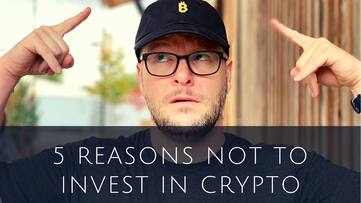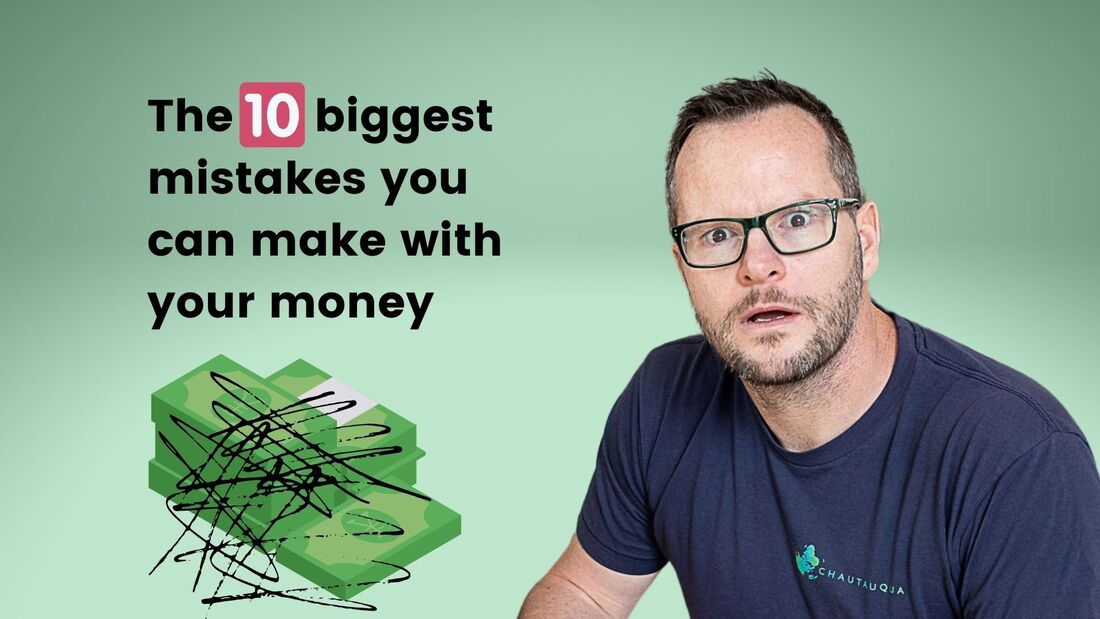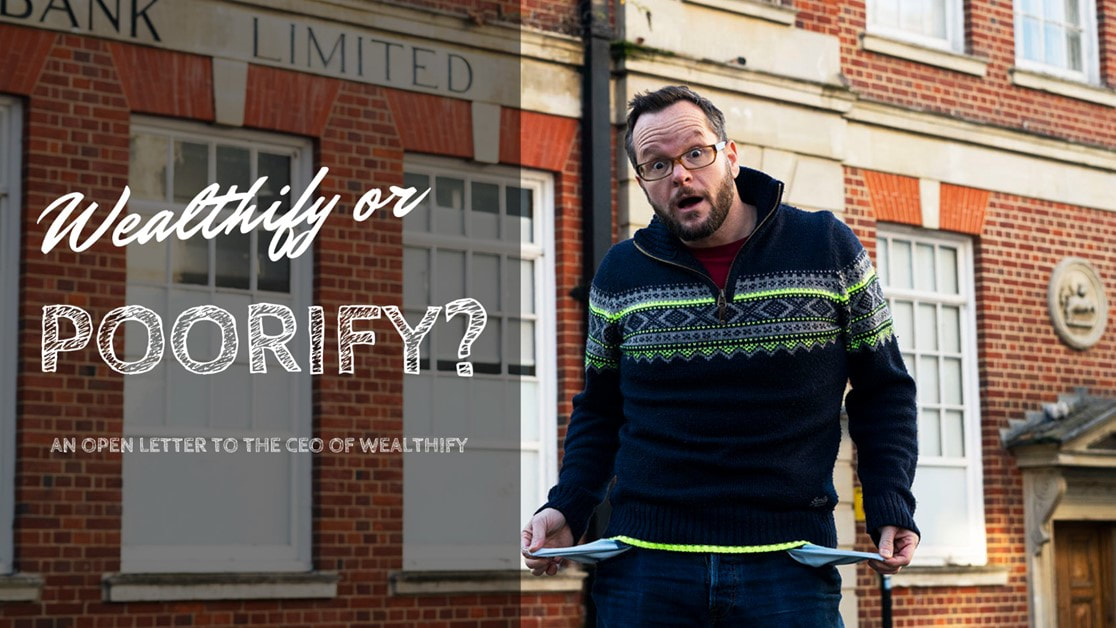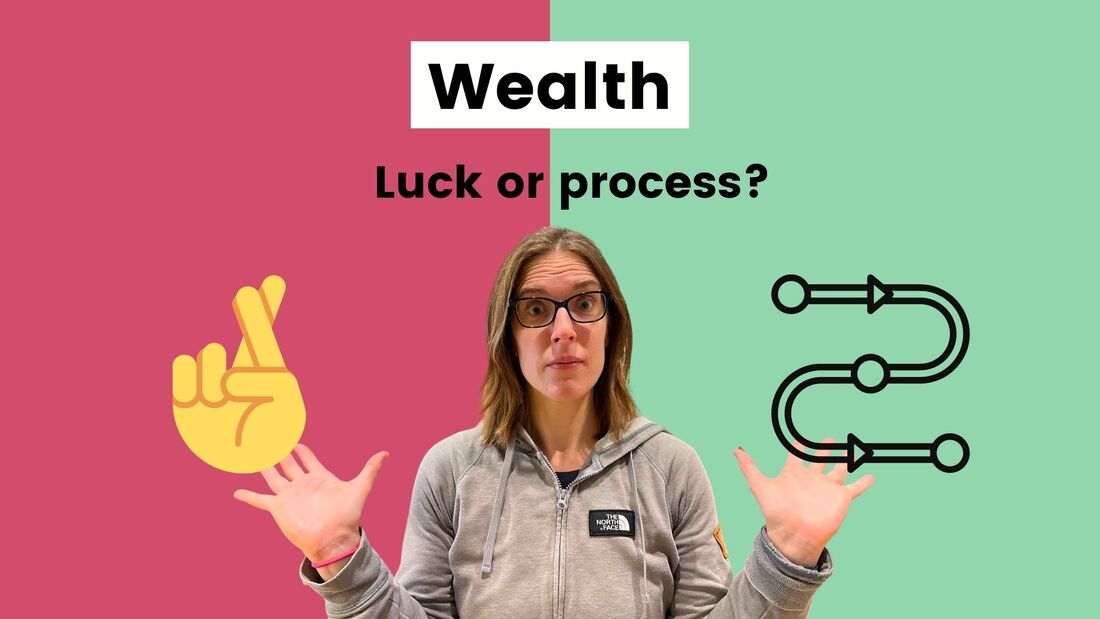|
Back to Blog
Over the last 4 years of running Rebel Finance School, Katie and I have had the honour of helping people avoid and unwind some of these mistakes. We have seen up close and personal the damage that these things do to people's financial lives. Some have happened to us and I am sure we will make mistakes in the future! This article is designed to help you avoid making some of the biggest mistakes we see people making in the world of finances! The 10 biggest mistakes you can make with your money!In no particular order, here are the 10 biggest mistakes we think you can make with your money. It is so difficult to avoid them as there are people out there marketing and selling to you. They are telling you that some of the stuff on our list is the best thing you could do with your money! It takes strength to stand up and say no to things. It takes strength to learn what to do to get your money working for you. I want this article to give you strength. I have spent this morning helping someone who felt pressured into investing with a financial advisor (FA). The FA was saying that index funds have had their time and he had to jump in and invest now. The FA had high fees and was putting huge pressure on my friend to invest. It takes strength to stand up to this bullshit! Allow me to give you the strength and some of the reasoning to defend yourself. 1. Investing with a wealth management company, for example, St James's Place The financial industry pretends that investing and finances are complicated and difficult to understand. They make you worried you're going to make a mistake and lose all your hard-earned cash if you were to invest on your own. They act like they're doing you a favour by taking the "responsibility" of investing out of your hands. They promise to look after you and your wealth. There's only one party that gets wealthy in this arrangement and.... spoiler alert... it's not you. St. James's Place, for example, charge you 5% of your initial investment (correct as at May 2022). 5 PERCENT! Say you inherit a hefty sum of money...most people turn to the "experts" to help them invest. And they're going to take 5 PERCENT of that sum to "help" you invest. They charge you MORE to give you WORSE returns than simple index investing. And what's even worse is that if you sign up to a pension with them and change your mind and want to transfer to another provider in the first 6 years, they'll charge you an early withdrawal charge of 6% in the first year, sliding down to 1% in the final year. THAT IS OUTRAGEOUS and shouldn't be allowed. So once you discover that there's an easier, cheaper, simple way to invest, they want to take another chunk out of your money to get out! They trap you in a bad investment. This year at Rebel Finance School we have met so many people investing with this company and the ways they pull the wool over your eyes is shocking. One person came forward and said to us that her St James Place advisor had told her that she had outperformed the market. We were shocked and didn't believe it and had to dig in to find out what had happened. And well the advisor had beaten a market. He had chosen the UK market on it's own which has done really badly over the last ten years. He was pulling the wool over this ladies eyes with clever data tricks when if she had invested in a simple global index fund she would have been £200,000 better off. The shit this company and others pull should be illegal. Don't know what index investing is?! Want to learn more about investing? Check out our guide to investing. The best information about investing is absolutely FREE. There are many financial independence (FI) blogs that give you all the information you need and they're not trying to sell you anything. Check out JL Collins' series of articles about index investing. When Katie first started working, before we knew any better, she invested with a wealth management company. The fees were ridiculously high and the performance was bad. If we had continued investing with them instead of switching to low-cost index investing we would have been £315,670 worse off. 2. Use Wealthify for your pensionWealthify or Poorify? I recently posted an open letter to the CEO of Wealthify asking them to change their practices. These modern investment companies are promoting their services and asking you to put your pensions and life savings with them, and trust them. They have high fees that DESTROY your investments over time and they actively manage your funds, which destroys your returns! I am horrified by Nest, PensionBee and other modern pension companies, and how they approach your retirement investments. Avoid at all costs. Learn how to invest for yourself (it is simpler than you think) and look after your own financial future! Want to know why then read the open letter to the Wealthify CEO here. 3. Do it because it's a "good deal"Just recently, a lady came to me asking about a property investment and whether she should do it or not. You probably know by now that when it comes to investments, The Donegans' think that the numbers are what you need to pay attention to, not emotion. I asked this lady some questions about the deal and asked for some numbers. Her reply didn't even mention numbers. It mentioned that the property was a "good" deal, that she had renters lined up and they were a lovely couple that she would be helping by renting to them. She told me that if she didn't do it now, she would miss out. And almost as a passing comment at the end, she agreed she should look at the numbers. This lady was a long way down the line, solicitors paid for, the deal in motion, and was only now looking at the numbers? On reflection, I don't think she wanted me to question the deal, she wanted my seal of approval for it. What she got was lots of financial questions. After a few days, she came back saying the deal would create a return on investment of 4%. I still have my doubts as to whether she worked it out properly and I am worried it won't even deliver that. I told her I thought it was a bad idea and to wait for the Rebel Finance School course as we teach investing. I thought I was pretty clear that this is a bad deal, you are doing it for the wrong reasons, and just wait for the course and it will all make sense. A few weeks before we got to the investing part of the course the lady messaged me saying that she had gone ahead and bought the house anyway as it was a good deal, and she would be letting the other couple down if she didn't do it. I wanted to scream!!!! All she had to do was say NO, wait for a few weeks and we would have helped her through the investing bit. She did the deal for ALL the wrong reasons. She risked her financial future because it was a good deal! I ranted to Katie for days. This really got to me. What was I meant to reply to this lady?? Should I tell her the truth: you have bought yourself work at a poor rate of return, and you could have got 3 times the return on investment in the market through simple index investing, and I think you are a complete plonker for ignoring me? Or should I have been nice? "Well done. Glad you got the investment and the good deal before it was gone." I didn't know what to say so I didn't reply. I was just pissed that I put all that energy in and got ignored. People buy stuff because "it's a good deal". They say such shit as, "If I don't buy it now, it will be gone!" Or "If I don't buy it, someone else will" Or "They have told me if I don't act quickly I will miss out!" Are they acting out of logic and maths or emotion and fear of missing out? If you EVER catch yourself saying "I need to buy it because time is running out" or "it is a good deal" or anything like this, catch yourself and STOP NOW! STEP AWAY FROM THE BUY BUTTON. 4. Invest instead of paying off your debt Should I invest or pay down my debt? Where should I put my money for best effect? These are questions we are asked endlessly at the Rebel Finance School, and I have a fairly simple formula to help you make this decision and avoid financial mistakes. Yesterday, I got a message asking for advice on Facebook Messenger. It was a fairly long message describing the person's financial situation and the question seemed to be, "I have $36k debt and around $36K cash. Should I pay off the debt or invest the money?" My first and only question was, "What is the interest rate?" If you invest that money instead of paying off your debt, you are borrowing money to invest. You are taking out debt to invest. So, you had better be getting a far higher return than the debt's interest rate and be pretty confident in the investment returns. Now, borrowing money to invest in a property is pretty commonplace. They have a name for it: leverage. You put a 25% deposit down and then you get a mortgage for the other 75%. They give you pretty low interest rates because they have an asset (the property) that the debt is secured against. But borrowing money to invest in the stock market is generally frowned upon! This person told me the interest rate on the debt was 7.5%. That is HIGH! What if you don't get that return on your investments? That will start compounding against you pretty damn quickly! The easy rule of thumb we use is:
You don't need to take big risks with your financial future. Slow and steady wins the game of finances. Don't take out lots of debt and go and put it all on red in the casino. 5. Borrow money to investThis is what you're doing if you invest instead of paying off your debt. People did this in the Great Depression in 1929. They do it in the good times because the market is going up so much that they need to get in NOW and big. They do it to try and cut a corner, they do it to try and get ahead, they do it because they feel like they are behind. We had a friend that invested in a couple of stocks they hand-picked. They were trying to make up for lost time so they picked what we would call "risky" stocks. Although as you probably know the Donegans' think all stock picking is risky! The stocks tanked dramatically. One went to the wall, bankrupt, and the other collapsed. As the stock collapsed, this individual decided they would back it even further as it had to come good. The losses mounted up, the stock dipped further, they were already all in, so they decided when it went down further to double down and borrow to buy more stock. They were considering selling the house to invest even more on top of their life savings and money borrowed from family and friends. To this day, the stock has never recovered. That money is gone. I am not sure about the saying "only invest money you can afford to lose" as Katie and I have our entire life savings in the stock market, and we can't really afford to lose it as that is what is going to pay for our retirement. I think maybe the saying should be updated to "only gamble money that you are willing to lose" and the term gambling should be updated to include cryptocurrency, stock picking and buying anything with debt at all. Please don't borrow to invest as we have seen it screw up so many people's finances over the years. The only exception to this one is a mortgage on an investment property. You are buying a cash-flowing (please do your numbers before buying) asset that will continue to perform for you over the years if it remains rented out. The art of borrowing money to invest is called leveraging yourself. It can make the returns on investment properties look amazing, but it comes with risks, which we will come on to in number 10. 6. Invest with a short time horizon (3 years) Daisy was getting 350 grand for three years from some kind of property deal and asked us how to invest it. She was so happy she had this deal, and she had the money to look after for three years. She came to me saying "You are going to love the deal I have struck!" Invariably when someone tells me this and I can feel the excitement in their voice, my heart sinks as I know I am not going to enjoy the crazy deal they have just struck. Daisy was so happy and then asked me what she should do with the money for the three years. She had to give it back, so couldn't afford to lose any of it but wanted to sure it made money in the meantime. She saw this as a huge opportunity. How risky it is to invest in the stock market depends on your time horizons. I am using risk here to mean the chance of losing money.
So, if you invest over three years, you have a reasonable chance that the market is down when you come to sell, and you HAVE to sell at that point because you have to sell to return the money. This is HUGELY RISKY. If you are investing for the rest of your life and then living off 4% in retirement, you aren't going to be forced to sell at an inopportune moment and risk crystallising a loss. The worst thing you can do is give yourself a timeframe where you MUST sell. You just can't predict if the market will be up or down at that point. This person now has £350,000 that they have to invest to keep up with inflation or they risk losing money in real terms when they pay it back. If they put it under the mattress that £350,000 is going to be worth less in real terms in three years. They don't really have very many good investing options. Maybe a short-term bond with a trustworthy source. Maybe a high-interest account. They have basically borrowed money to invest over three years, which isn't a long enough time frame to be sure of a good return. I would avoid this deal at all costs! Investing over the short term is a risky proposition! When you are investing take your money, stick it in a broad based index fund and leave it to grow forever. 7. Buy high and sell low It is in human nature to protect ourselves from the downside. If we see something going wrong, we want to stop it. Even if it is the wrong thing to do, we can't help ourselves. You see your child about to fall off something they are climbing on, so you rush over to catch them. You want to help yourself and all those around you from avoiding pain. A natural thing to do. Sometimes the natural response is not the best one though. Parents that always help their children avoid mistakes deprive the children of the learning that they need to avoid making their own mistakes, and sometimes set them up for a far greater fall down the road. But how as a parent do you get comfortable allowing your children to fall? Avoiding pain is a natural reaction. Right now, as I write this, we are in a bear market, which means that the stock market has declined some 20% from its peak. What this means is that the value of stocks in your portfolio is going down and down and down. Every day, people are checking their stock prices and seeing their hard-earned capital evaporate. In reality, you haven't lost anything unless you sell. You still have the same number of shares; they are just valued less at the moment. They will go back up again. But people don't think like that. They don't think logically. They look at the headline number and see their money disappearing and they panic and sell, crystalising what was up until that point a fake loss. Fear makes them create what they are actually afraid of. One of the things I have come to realise over the last few years is that we all create what we are afraid of. We are afraid of losing money in the stock market and so when the market goes down, we panic and sell, which makes real the fear we had. If we had held the index fund then it would have gone back up and those losses would never actually have existed! If you don't really understand investing it can destroy your financial future. If you get to understand it and learn about it then it can be one of the most powerful wealth-generating tools you will ever discover. JL Collins regularly says in his talks that if you panic when the market is down and sell, his methodology will leave you bleeding by the side of the road. Why do so many people make this mistake? Greed and fear. There is a greed and fear index that measures investors' emotions. When the market is going up, people think they are missing out, they get greedy and they invest big time, sometimes with money that isn't theirs! As soon as the market crashes (like right now in July 2022), people become fearful, and they sell because they are worried about more losses. You might be thinking, Alan I am not that dumb. Well, people are literally buying high and selling low when they do this, and we have watched so many people do it. What do you need to do about this one? Understand index investing, buy a broad-based index fund and hold forever. Never sell. 8. Cryptocurrency scams 5 reasons not to invest in crypto 5 reasons not to invest in crypto I have so many stories of people who have lost their life savings in cryptocurrency. It has made many people wealthy and left many other people destitute. This article in The Guardian serves as a cautionary tale of what can happen if you bet big on cryptocurrency. Even non-scammy cryptocurrency isn't a good idea. Alan wrote an article explaining what he thinks of cryptocurrency. I've written before that there are over 19,000 different cryptocurrencies in existence and unless you have a crystal ball, you have no way of knowing which ones will do well and which ones will go bust (hint: most of them). Stop gambling your money on hugely risky "investments". And I put investments in quotations as I don't see crypto as an asset or investment as it is not a cash flowing asset. 9. Picking individual stocks Alan at the casino. Or rather outside the casino not gambling! Alan at the casino. Or rather outside the casino not gambling! Even JL Collins, who writes and speaks so passionately and eloquently about index funds, did this; he talks about how he invested in a gold mining company and lost everything he invested. Alan has written before that picking individual stocks is a form of gambling that's statistically very likely to go badly for you. Avoid stock picking as it is a form of gambling. You don't want your future and your wealth tied to one company's success. This is crazy! Please stop gambling with your savings! 10. Overleveraging Leverage - using borrowed money to increase the potential return of an investment - can be a wonderful thing when it goes your way. For example, let's say that you bought a house for £200,000 and put down a 10% deposit of £20,000. A year later, the house has increased in value by 5% and is now worth £210,000. The house has increased in value by 5%, but your personal investment of £20,000 has increased by 50% since the house is now worth £10,000 more. Easy money! But wait. Leverage is a double-edged sword. Gains are magnified, but so are losses. If that same house had dropped by 5% in value, it would be worth £190,000, and you would have lost 50% of your personal investment. If the stock market always goes up, why don't you take out a cheap loan for as much as you can and invest it? Why not use other people's money to build your own wealth? If you can borrow at 3% and get 7% in the market, you can just pocket the 4% difference, can't you? Well, if you can keep up the repayments, if you don't lose your job, if no major financial emergencies happen, if the lender doesn't call in the loan, and if the stock market keeps going up, then that would work. That's a lot of ifs, and that's a lot of risk. It only takes one link in that chain to break and suddenly you're in big trouble. The global financial crisis of 2007-2008 showed us what can happen when overleveraging ends in tears (and even suicide). People with low incomes were the subject of predatory lending and were given so-called subprime loans - meaning the lenders knew they would likely have difficulty making the repayments. House prices were in a bubble and investment banks had been engaging in risky practices, selling packaged subprime loans as "investments". Eventually, the bubble burst in the housing market and the whole deck of cards (debt) came crashing down. Nearly 10 million Americans have lost their homes since then and governments had to bail out financial institutions to prevent a collapse of the global financial system. Financial institutions, too, were overleveraged. My simple rallying call is avoid debt and by assets. You can start investing in a simple broad based index fund with as little as £100/$100. Avoid debt, play the long game and work on build a stable financial future for you and your family. People do crazy stuff with their money!There are 10 of the biggest mistakes you can make with your money in our opinion. Katie and I recently wrote an article discussing whether wealth was luck or a repeatable process. People do the things above because they think they have to gamble and be lucky to be wealthy.
You don't. It is a repeatable process. Want to know more. Read this article next. Stay safe out there in the world of finances. If you have money there will be sharks circling to take a bite out of your hard earned money. Be careful and take your time. Sending you love Katie and Alan THANK YOU A huge thank you goes to Derek who helped me finish this article. Derek is one of the Rebel Ninjas who helped us run the course and he has since launched his own blog charting his journey to financial independence. You can read his start here article here. |
DONEGAN |
We built this website to share our stories, the adventures, the amazing people and all the life lessons we've learned along the way!
SIGN UP to our mailing list
|

 RSS Feed
RSS Feed




